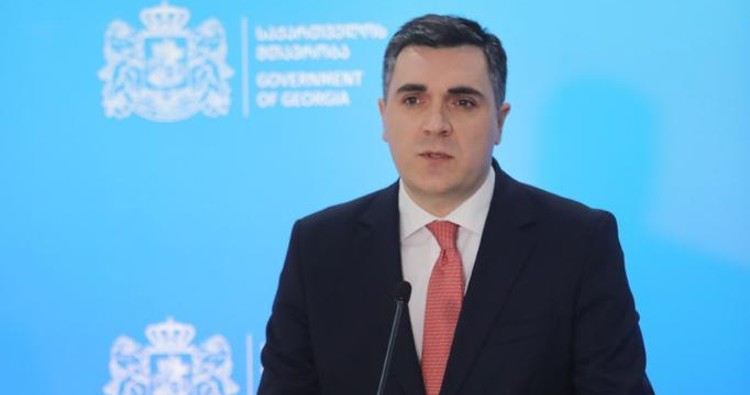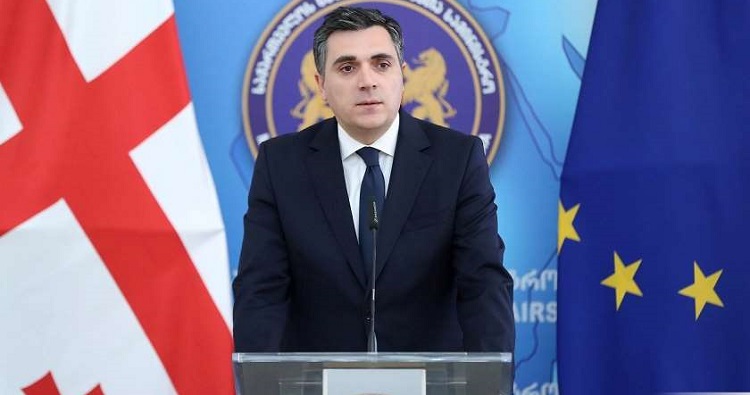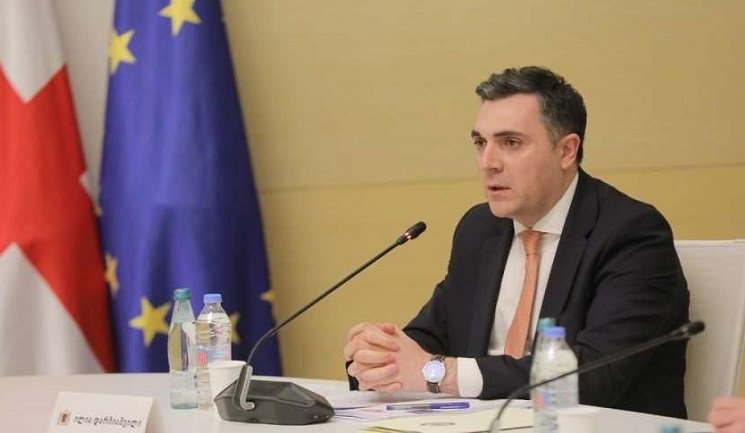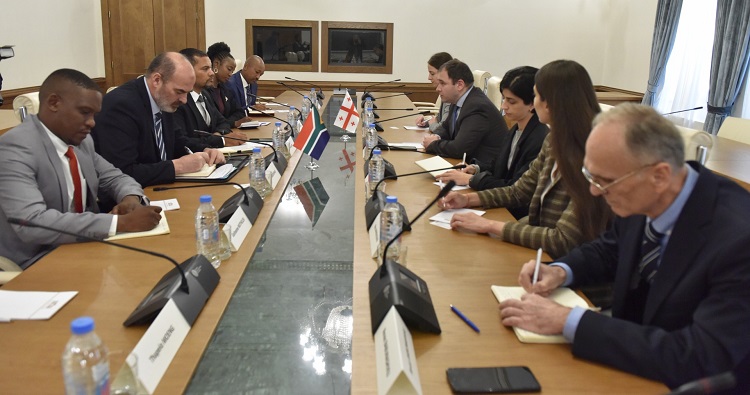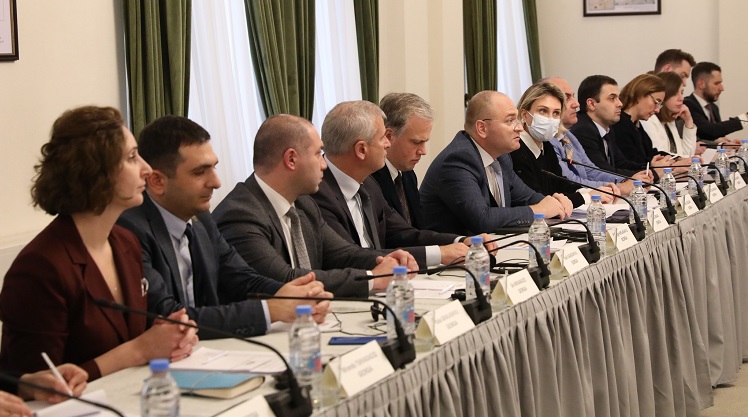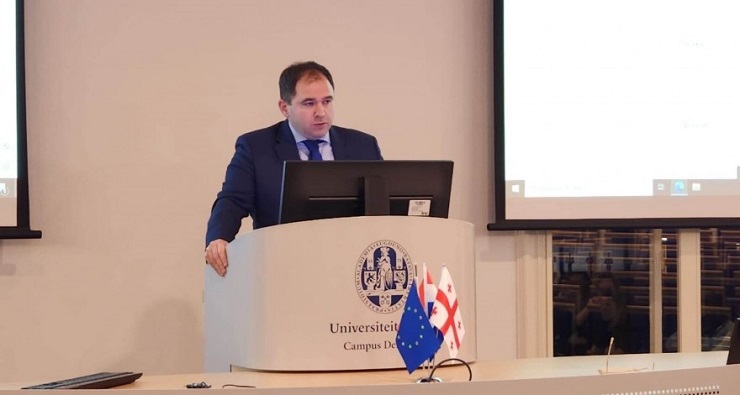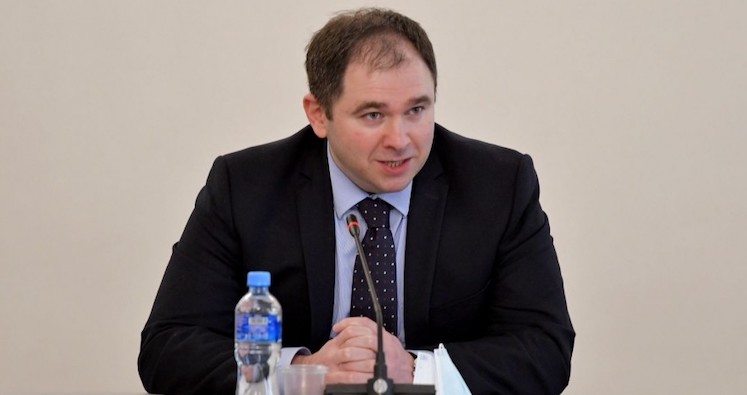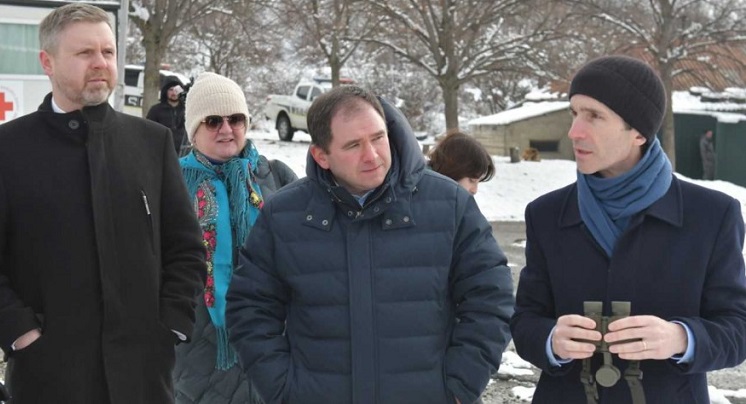Parliament committee chair hails “pragmatic, consistent” foreign policy of gov’t
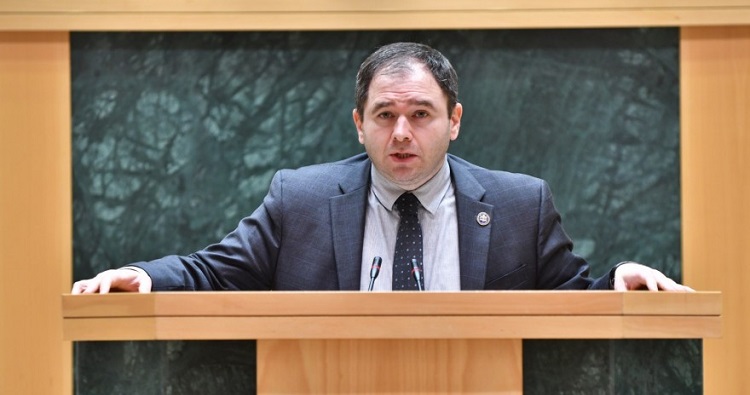
Samkharadze claimed Georgia was the "last democratic country in the post-Soviet space” and “fast approaching" integration into European and Euro-Atlantic institutions, a development he said “clearly contradicts the interests of the Russian government”. Photo: Parliament of Georgia
Nikoloz Samkharadze, the Georgian parliament's foreign affairs committee chair, on Thursday said the Georgian government was “efficiently” implementing a “pragmatic and consistent” foreign policy despite challenges, and maintaining “peace, stability and a trend of sustainable development” as a result.
In his remarks at a plenary meeting of the parliament following the address of the foreign minister Ilia Darchiashvili, Samkharadze noted this year was “particularly challenging” for diplomacy, as the ongoing Russian aggression in Ukraine was “particularly dangerous” for countries like Georgia.
The ongoing Russian aggression in Ukraine turned the entire international system upside down and put both Georgia and the whole world in front of challenges. Unfortunately, we are well aware that even with a small Russian success in Ukraine, Georgia may become Russia’s next target”, the parliament official said.
Samkharadze claimed Georgia was the "last democratic country in the post-Soviet space” and “fast approaching" integration into European and Euro-Atlantic institutions, a development he said “clearly contradicts the interests of the Russian government”.
Unfortunately, when the consolidation of the public around national interests was most needed [...] since the beginning of the war in Ukraine, various groups, including [domestic] opposition parties, acted only in their narrow political interests and tried to hinder the Georgian government in this difficult situation”, Samkharadze continued.
He also noted that on the backdrop of the ongoing Russian aggression in Ukraine, Georgia’s foreign policy was of “crucial importance”, as without “close cooperation” with partners, it would be “impossible” to deal with all the challenges that Georgia, Europe and the Black Sea region were facing.
We should not forget that our region is facing particular threats. Despite so many challenges when small states struggle to survive, we still manage to continue the country's sustainable development, maintain peace and stability, and move towards our European and Euro-Atlantic aspirations”, Samkharadze concluded.
 Tweet
Tweet  Share
Share
